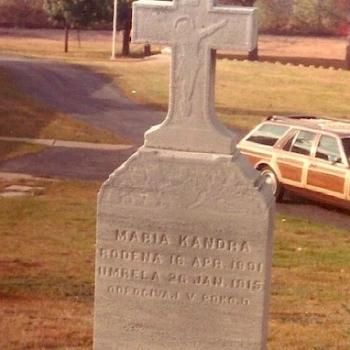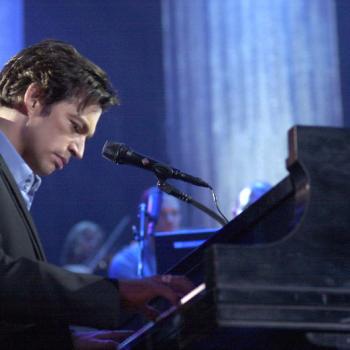So, how are those New Year’s Resolutions going?
Back on January 1, Forbes posted an article on their website saying that about 40% of Americans make resolutions for the new year —but only 8% of those people end up keeping them. And usually after about a month – meaning any day now—most of us have fallen back into our old habits.
I know my waistline hasn’t gotten any smaller, my desk hasn’t gotten any more organized and the treadmill at home is gathering dust.
The Forbes article offered some suggestions for keeping your resolutions: keep them simple, make them tangible, and, perhaps most importantly, keep believing that you can do it.
All helpful advice, I think, while the year is still new and we still have a sense of something beginning, of a page being turned and a new chapter unfolding in our lives.
As if to reinforce this sense of something beginning, our gospel this Sunday is, literally, about something beginning. We encounter the first words of Luke’s gospel, which then leads us to an episode a few chapters later in a synagogue, for the start of Christ’s public ministry. Even that echoes another beginning, since it took place where Jesus’s life began — in Nazareth, the scene of the Annunciation.
And in this moment, I think, Jesus offered another Annunciation: he was announcing glad tidings, liberty to captives, sight to the blind, freedom to those who are oppressed.
What comes through in this brief passage must have been startling to those who heard it; the people sitting in the synagogue weren’t hearing the fire and brimstone of John the Baptist. This wasn’t a call to repentance. This was something else altogether. In Christ’s first public teaching moment in Luke’s gospel—the Messiah’s first message to the world—he was proclaiming, in every sense, good news.
This is what the gospel is all about
The dictionary tells us that the very word “gospel” comes from Middle English, from “god-spell,” meaning, literally, “good tale.” Good news. And as we just heard, it is very good news. It’s about recovering what has been lost: sight, freedom, dignity.
Somehow, though, it’s that message that often gets lost and that needs to be recovered.
Last year, Cardinal Timothy Dolan put it beautifully in an interview about vocations. “The Church,” he said, “is always looked upon as saying ‘no’ to everything. And, we aren’t saying ‘no.’ The Church is one big ‘yes.’ Yes to anything that will make us happy in this life and the next.”
We need to remember that. We are people who believe in salvation. In reconciliation. In renewal and conversion. We are people who believe in the resurrection.
We believe in faith, hope and charity—to help the helpless and defend the defenseless.
We believe in the most enduring and challenging three words of Christ’s teaching: love one another.
Following Christ’s example, we are people who proclaim good news. Glad tidings. Joy.
We are a people of “Yes.”
So why doesn’t the world see that? It may be that we aren’t communicating it. It may be, in fact, that we aren’t living it.
In the synagogue in Nazareth, people listened with expectation to what Jesus had to say. As Luke puts it: “The eyes of all in the synagogue looked intently at him.”
Twenty-one centuries later, the eyes of the world are looking intently at us. What do they see?
Do they see people who are living the gospel, the “good tale”?
Do they see people who have a deep and abiding friendship with Christ? People who have taken what he taught to heart? Do they see people uplifted by the sacraments, especially the Eucharist—people who literally receive Christ into their hearts and bodies and lives and want to share that with the world?
Or do they see people who are indifferent? Judgmental? Unforgiving? Hypocritical?
Do they see people who profess one thing on Sunday, but do another on Monday?
Do they look at us and see people still captive, still oppressed, still blind? The healing work that Christ proclaimed in Nazareth extends far beyond the physical limitations mentioned in Isaiah. It also encompasses the stifling limitations of sin—the blindness and captivity we carry in our hearts. That is what he truly came to change.
And his message reaches far beyond the geographical boundaries of a synagogue in 1st century Galilee. It cries out to us here and now.
Are we listening?
If there is one New Year’s resolution worth keeping, it’s this one: embrace Christ’s “glad tidings.” Resolve to live with Christian joy. As Cardinal Dolan might put it, resolve to live with “Yes.” Resolve to say “Yes” to the gospel, the “good news” again and again and again. Say “Yes” to possibility and to hope.
Luke’s gospel today is about great beginnings—the greatest, really, in all of history.
Four weeks into a new year, it reminds us that there is always time to begin again.
To start anew.
To say “Yes.”












